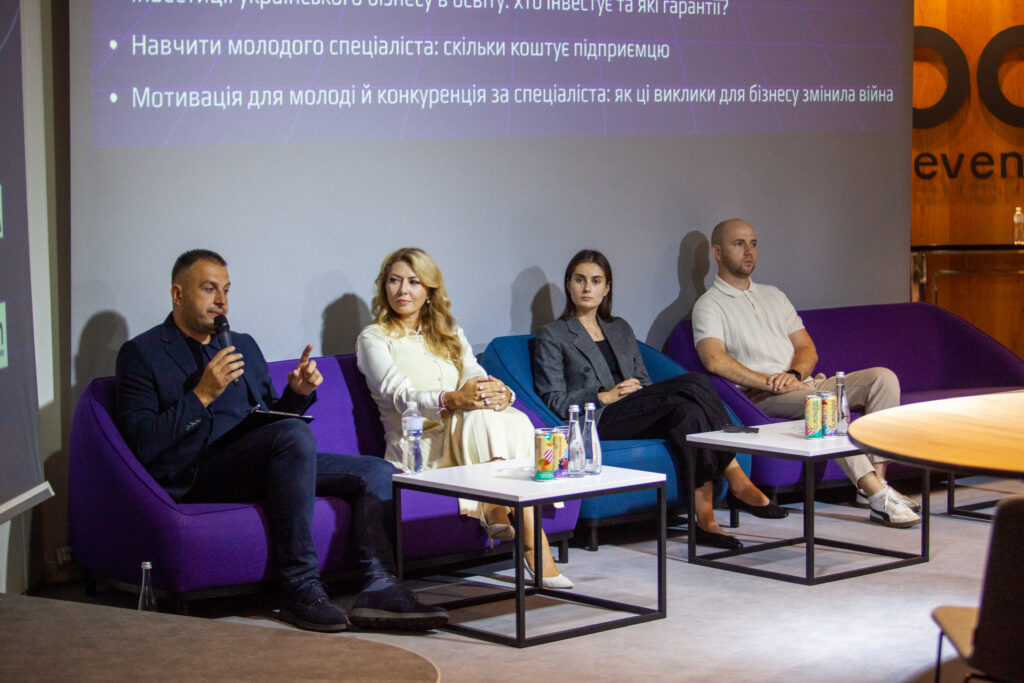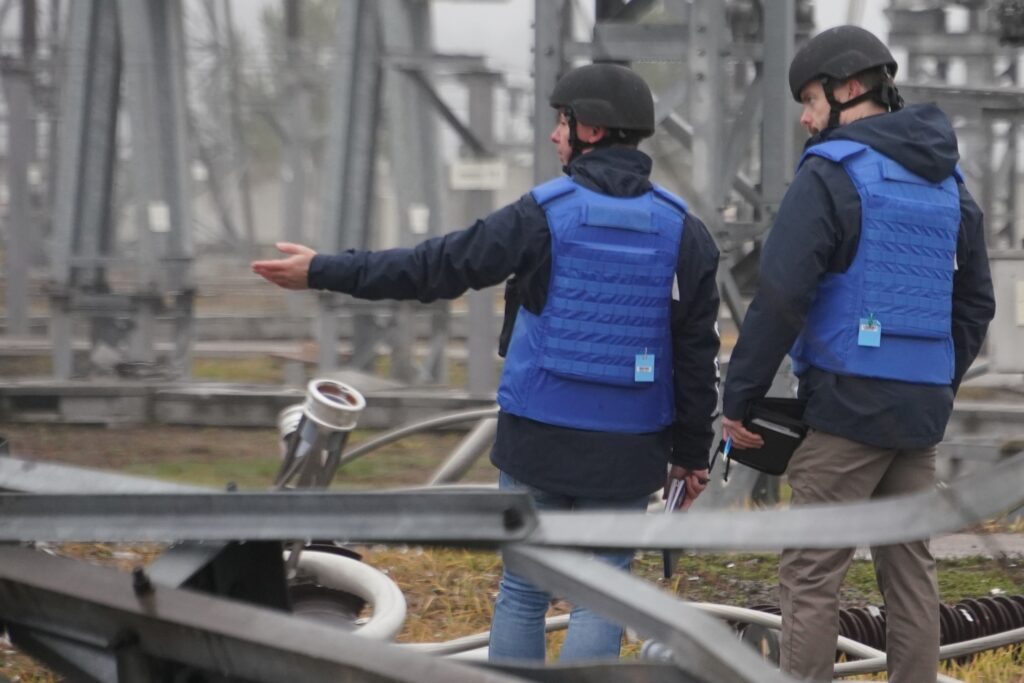Silent migration and competition for students: Kyiv hosts forum “You can’t let go of young people”
22 September 2025 16:53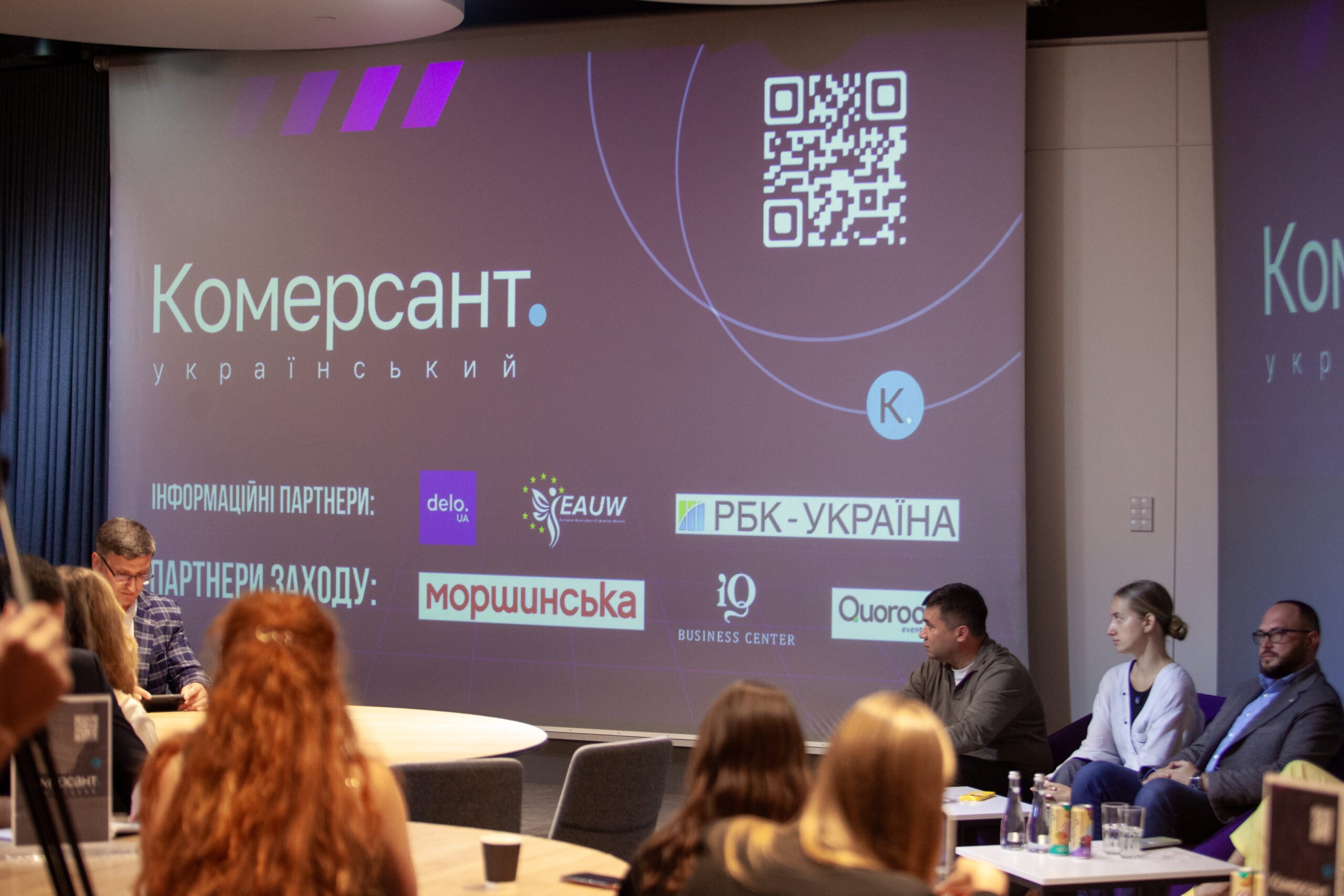
The war and mass migration have made the competition for Ukrainian students extremely fierce. Young people see more opportunities abroad, and domestic universities are forced to prove their worth. The reasons why Ukrainian applicants are increasingly choosing to study abroad are clear, but the participants of the forum of educators and employers discussed how to counteract the outflow of young people in the context of access to educational services and creating conditions for further professional development at home – together with domestic business: “You can’t keep young people – you have to let them go” by "Komersant Ukrainian".
And the panel: “How and who competes for Ukrainian students with foreign universities and whether Ukraine is still losing in this “competition”.
The biggest challenge is large-scale migration. According to the United Nations High Commissioner for Refugees, about 6.9 million Ukrainians have gone abroad. But this is not the limit, says Oleksandr Hladun, deputy director of the Institute of Demography and Quality of Life at the National Academy of Sciences.
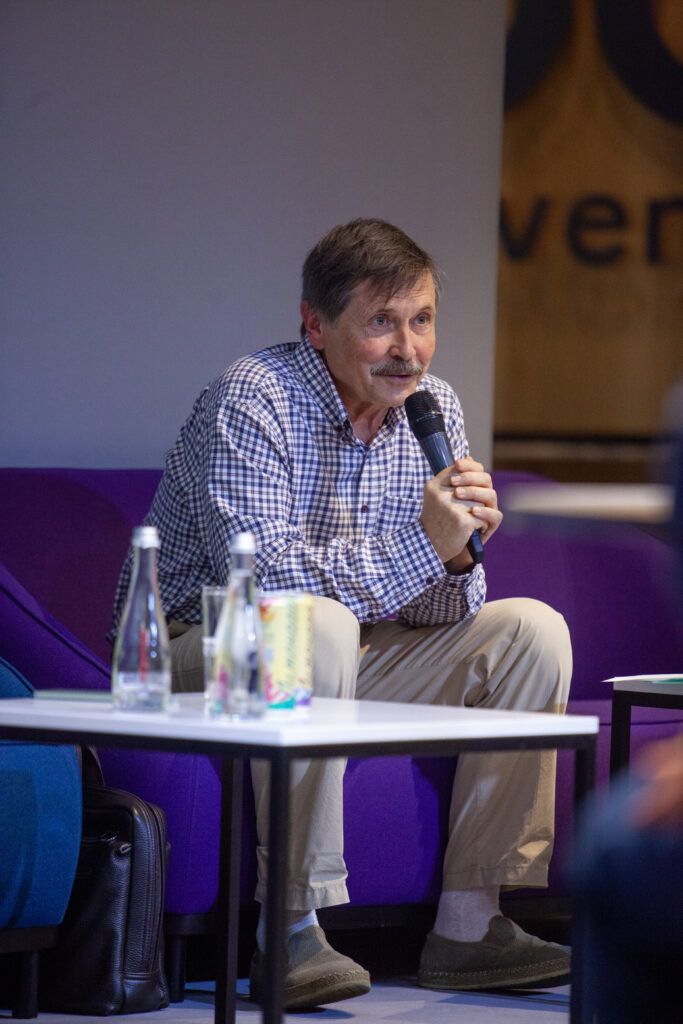
In particular, opinion polls show that while at the end of 2023 only 26% of Ukrainians planned to emigrate, in April 2025 the number increased to 45%. According to Hladun, in addition to the war, the situation is complicated by an internal factor – a sense of injustice and the closure of social elevators.
“People feel that it is impossible to get through if you are not connected to political or financial structures. We need to figure out what is wrong inside the country, and this will also affect the demographic situation,” the expert concluded.
Amid the war and global competition for talent, more and more Ukrainian schoolchildren and students are choosing to study abroad. Some of them do not even consider domestic universities, as they have a chance to enter the world’s top institutions without NMT or other difficult exams. For Ukraine, “it looks like a loss,” said Tymofiy Mylovanov, president of the Kyiv School of Economics, but he urged not to panic, as some of these young people will return home.
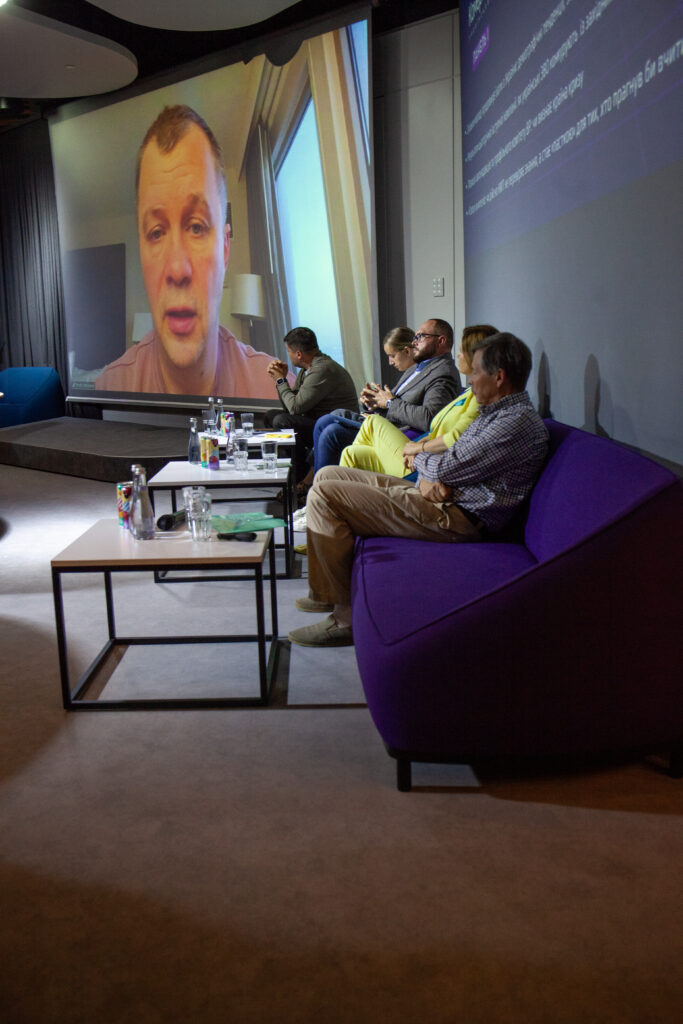
“Many of those who went abroad to study will not return. But there will be those who will. They will bring a different culture and experience to Ukraine and create new projects. This should become part of our policy, as in the case of Israel, where the diaspora actively supports the country,” Milovanov said.
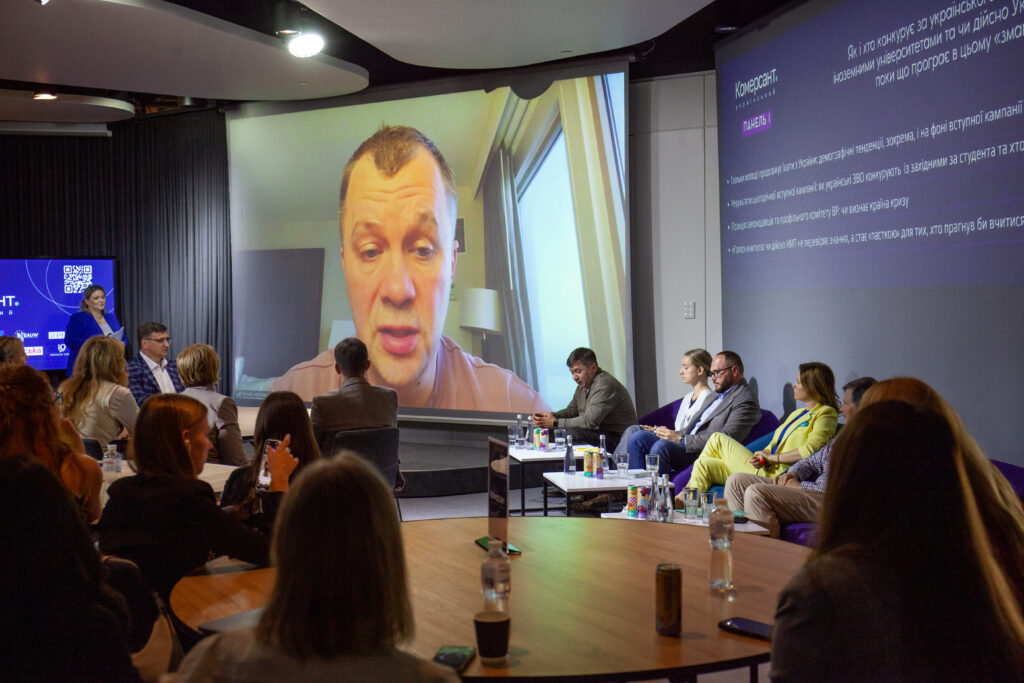
At the same time, this year’s admission campaign in Ukraine has shown that the supply of higher education institutions far exceeds the number of students, as noted by Deputy Minister of Education Andriy Vitrenko.
“There are 429,000 places in higher education institutions in Ukraine, and this year’s applicants are 210,000. That is, the supply is twice as high as the demand. Is this a problem? Yes, it is. The second problem – the most important one now – is the security issue. And if earlier the first three places (leading universities in terms of student enrollment – ed.) were occupied by Kyiv, now it is Lviv,” he said.
Vitrenko also emphasized that the success of a university today depends not only on infrastructure or availability of dormitories, but also on the ability to offer the value that an applicant is looking for for his or her future.
In addition to the migration of the country’s educational potential abroad, there is another, no less important one. This is the internal migration of young people from the frontline regions of Ukraine, emphasized MP Yulia Hryshyna. She noted that the outflow of students and teachers from such regions literally destroys cities where educational institutions are city-forming structures and the basis of economic stability.
“When students and teachers from the border regions leave, there will simply be no city left. This is a matter of national security. Therefore, as one of the steps, we propose a “postponed EIT” as a way to keep young people in these regions,” she noted.
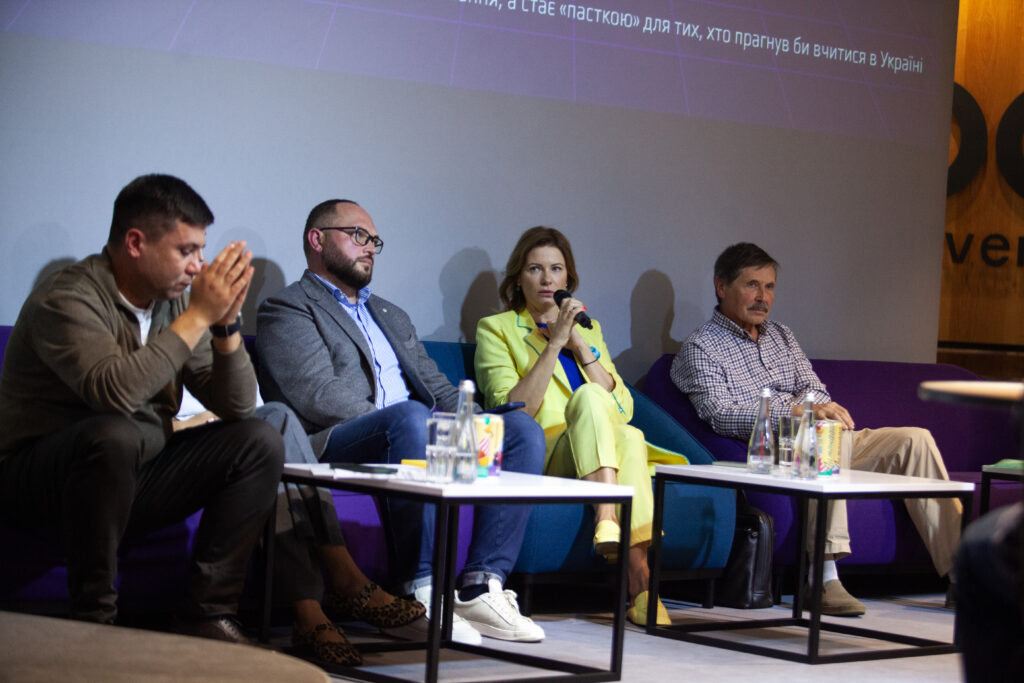
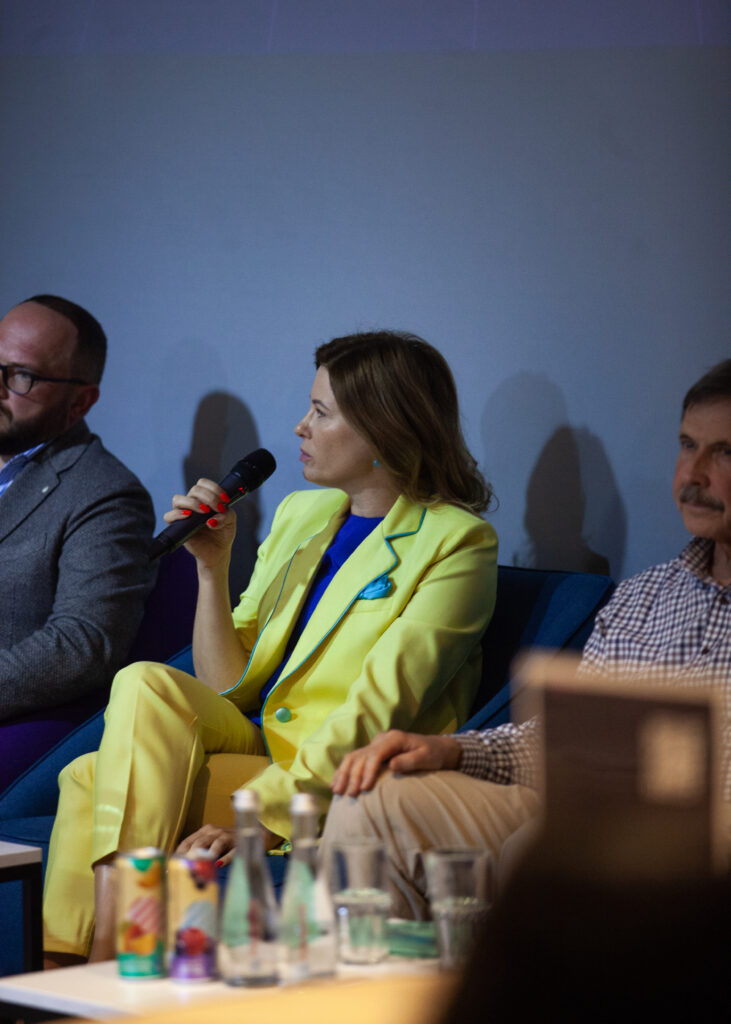
Agreeing with his colleague, Rector of Zhytomyr Polytechnic Viktor Yevdokymov noted that in times of war universities become real magnets that can retain the population and create prospects for development.
“If we lose our human potential now, it is a threat to the country. Universities are magnets for cities. If young people leave, there will be no schools, no medical centers, no outpatient clinics – entire settlements will simply disappear. We can win this war, but it will be difficult to win the next one if we lose people,” he said.
Stress, anxiety and blackouts: how external factors affect NMT results
The National Multimedia Test (NMT), introduced as an emergency solution after the outbreak of war, has been criticized by educators for years because of its complexity, length and imperfections. These problems are especially urgent in times of war, when NMT is seen as a barrier that can provoke young people to leave the country.
The current form of testing does not take into account the cognitive limits of adolescents and creates additional stress in times of air raids and power outages, emphasized Andriana Pauk, English teacher and founder of Bla-bla School.
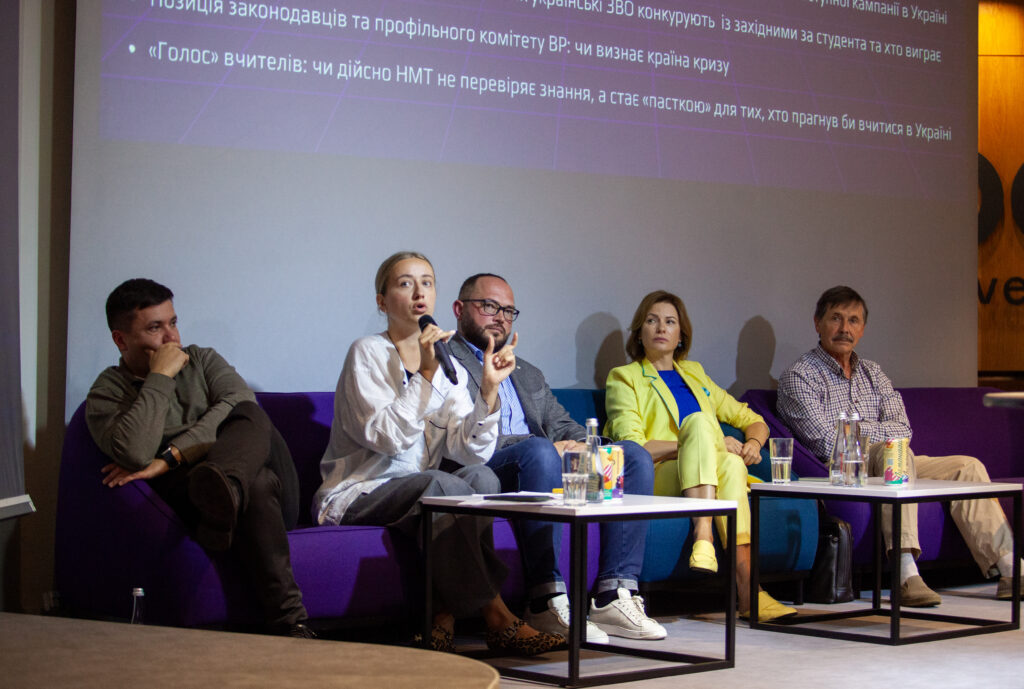
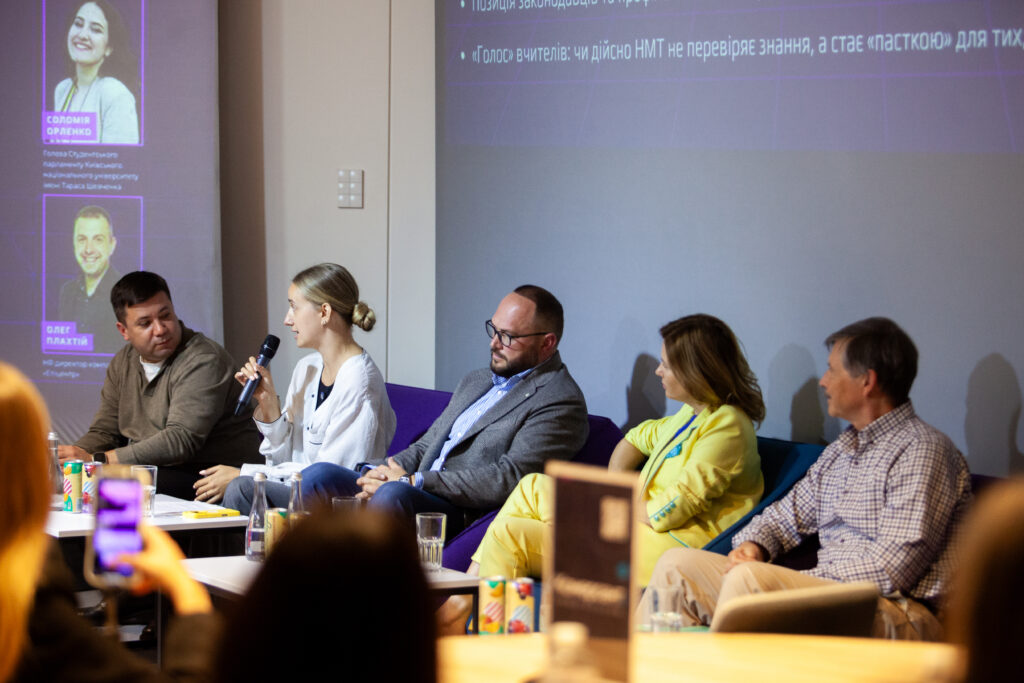
“If we are talking about the cognitive limits of teenagers’ brains, 35-40 minutes is the maximum concentration. And now students are tested for at least 4 hours. This not only overloads them, but also increases stress and reduces their chances of successful admission. Students who fail all the NMT subjects often go abroad, where testing is much more loyal,” said Pauk.
Panel II: “Silent Migration: Admission Conditions and the Scale of Student Outflow”
Liliia Hrynevych, Vice-Rector of V. N. Karazin Kharkiv National University and former Minister of Education and Science, drew attention to critical statistics. While in 2022, 85% of high school students wanted to stay in Ukraine, according to the latest data, only 45% did. She emphasized that even if young people get an education abroad, it is worth focusing on measures that can bring them back home.
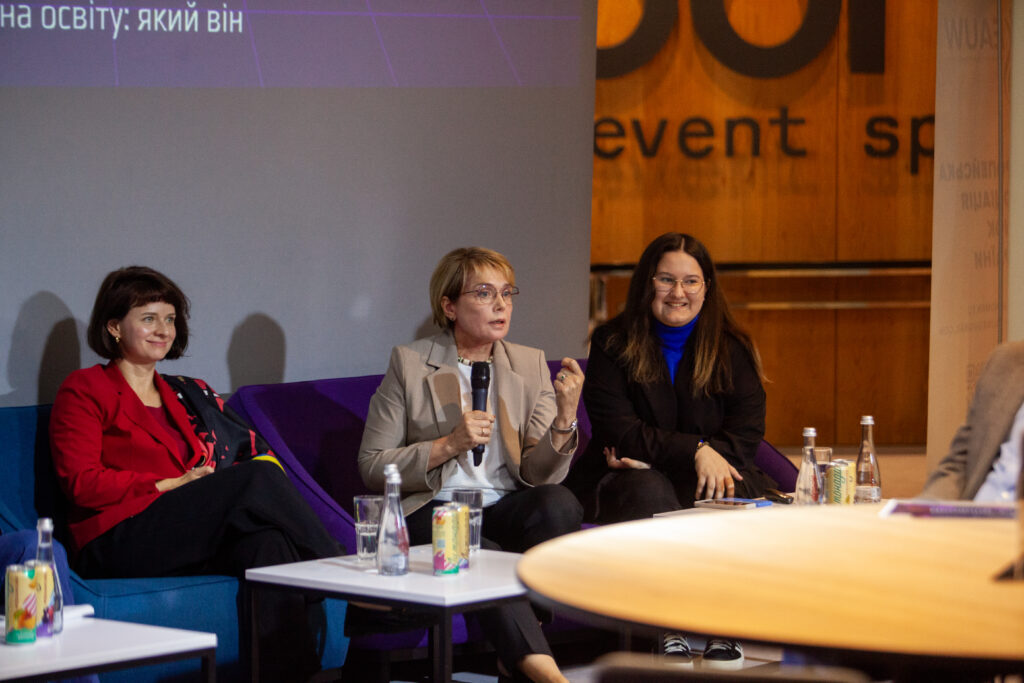
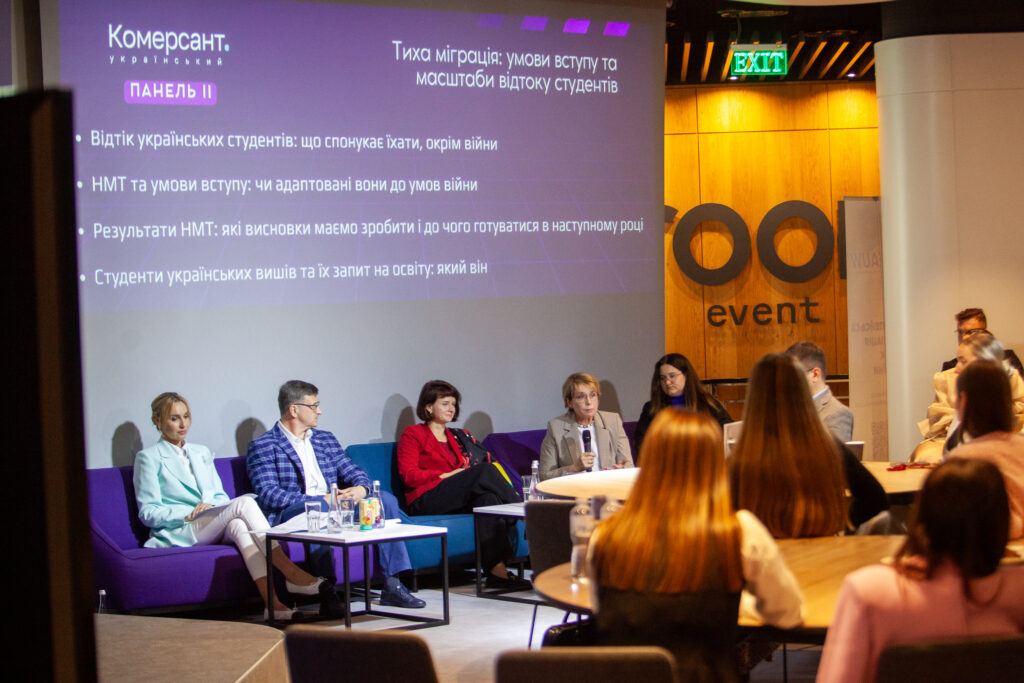
In her opinion, the task of retaining scientists in Ukraine also requires important government decisions.
“How can we retain scientists with high Hirsch indices? If we don’t have a policy of supporting the best universities and the right decisions, we will get an outflow of teachers and researchers abroad. And we need to take into account how much money the Ukrainian state has already invested in their training: higher education, postgraduate studies, doctoral studies, work, and thesis defense,” Hrynevych said.
Tetyana Vakulenko, director of the Ukrainian Center for Educational Quality Assessment, noted that despite the war, anxiety and stress, Ukrainian applicants demonstrate high test scores. She also confirmed that the NMT needs to be improved and assured that a team of experts is already working on it.
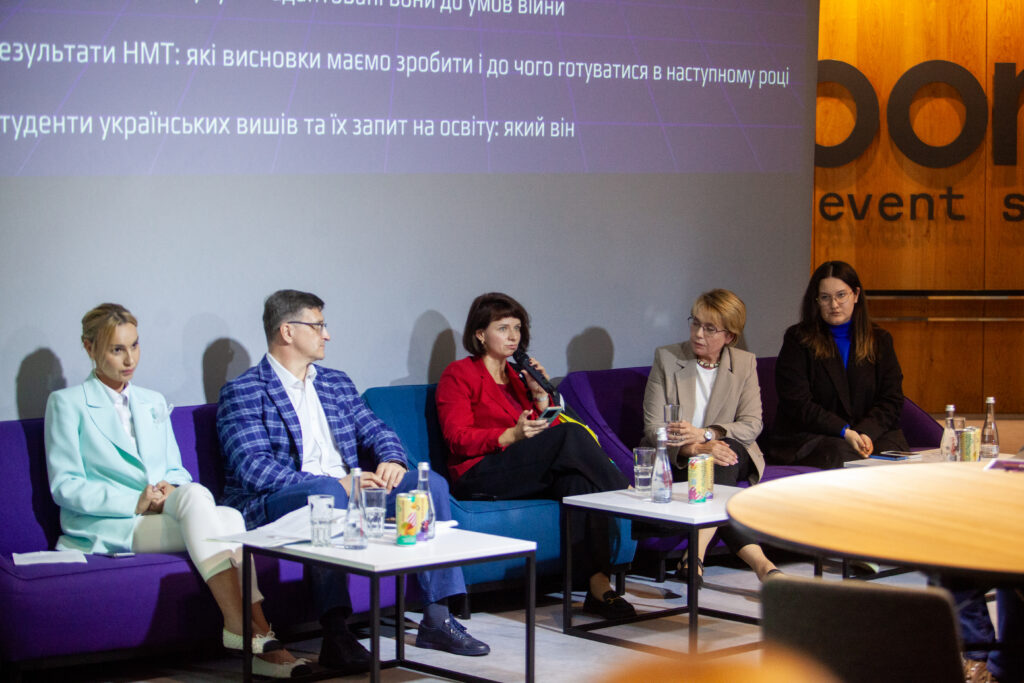
Violetta Dvornikova, Head of the European Association of Ukrainian Women (EAUW) and Advisor to the Ukrainian Parliament Commissioner for Human Rights, emphasized the importance of supporting Ukrainian children who study abroad and return home.
“The rules for admission to Ukrainian universities that are not adapted to the realities of war add to the motivation of our children not to return from abroad. But it is never too late to draw conclusions and correct mistakes. It is very important for the Ukrainian education system to become more loyal to those children who left in the early days of the war and now want to study at home,” she said.
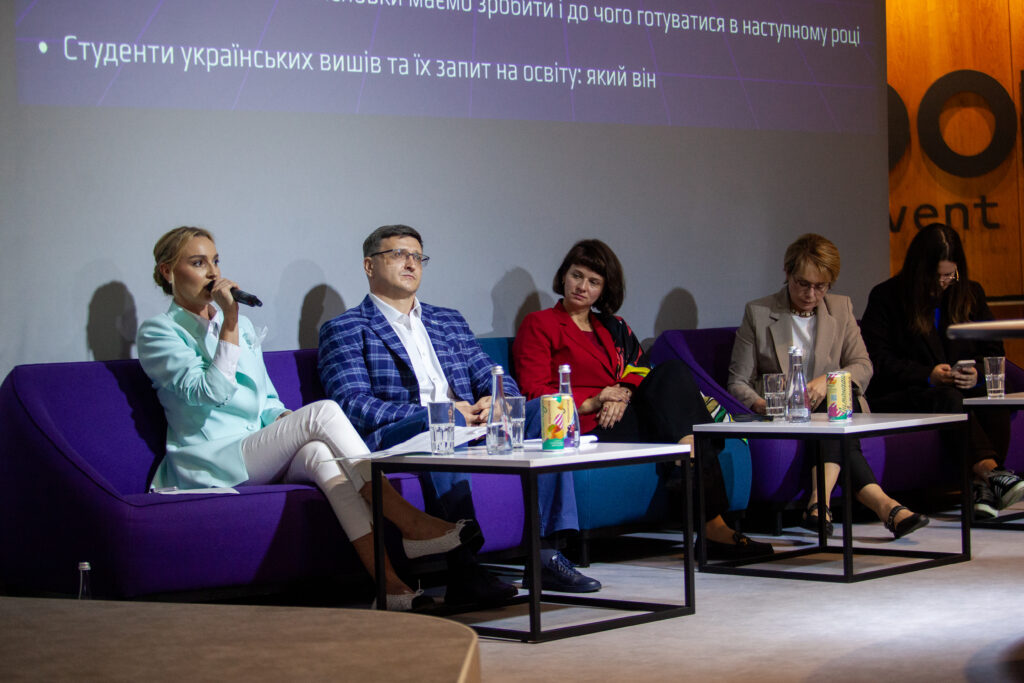
Vasyl Voskoboynyk, President of the All-Ukrainian Association of International Employment Companies and Head of the Migration Policy Office, emphasized that the educational part, although important, is not the only one that influences the decision of Ukrainian youth to stay or go. The difficult socio-economic situation, high housing costs, low wages, etc. do not always favor their choice in favor of Ukraine.
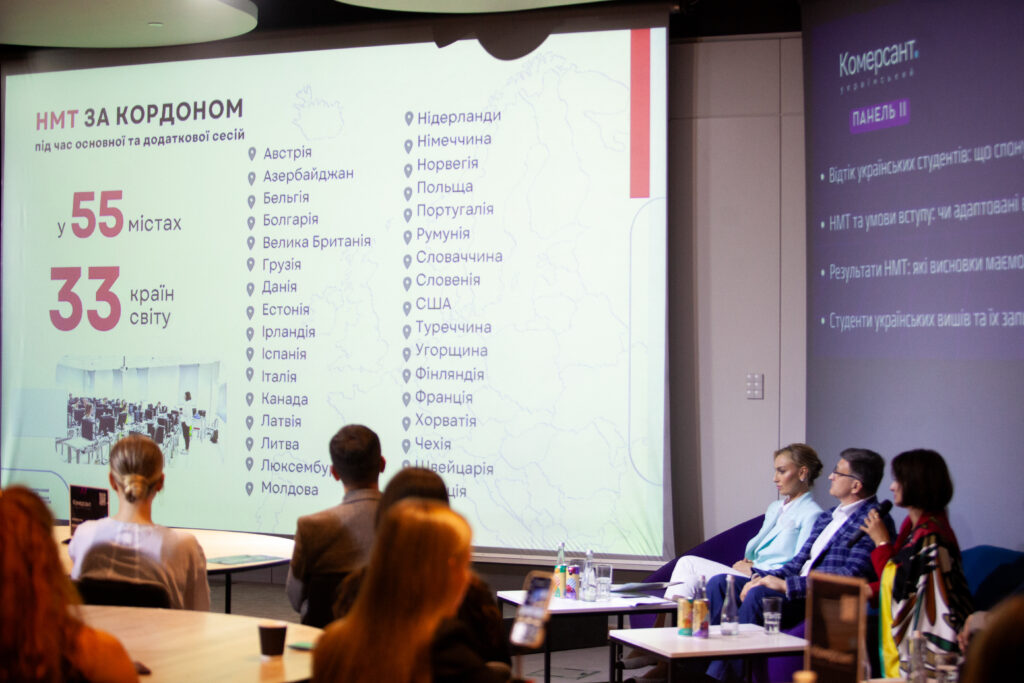
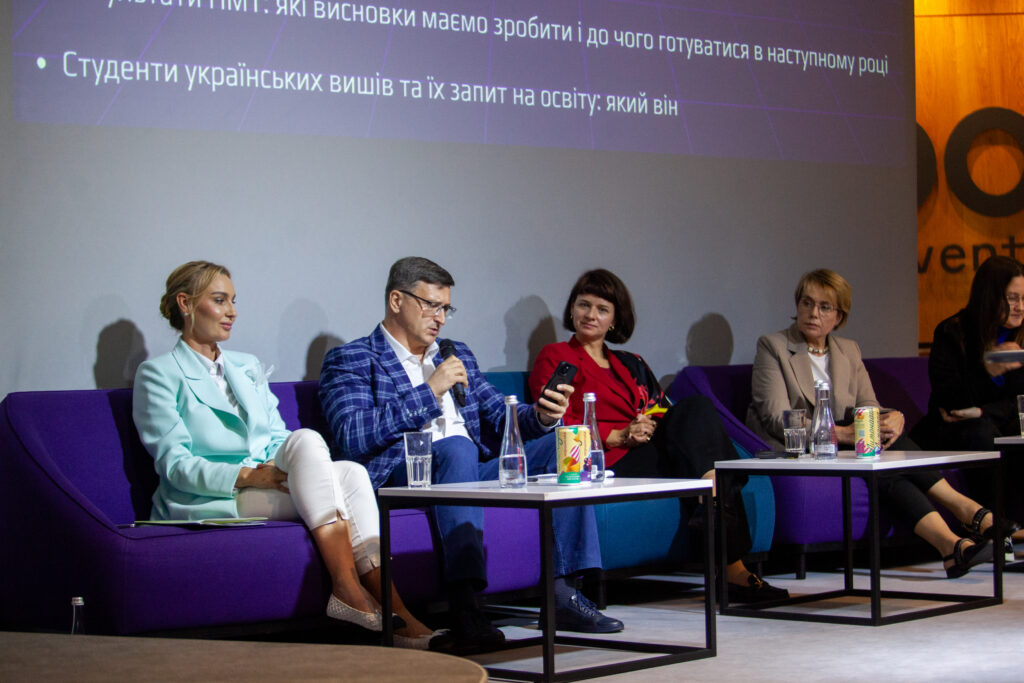
Panel III: “The Voice of Business and Employers: Does Anyone Hear It?”
Investing in people is not only social responsibility, but a real business value, says Natalia Teryakhina, HR Director at Kernel. The company’s goal is not only to attract young people to Kernel, but also to expand the labor market in general by providing modern opportunities for professional development.
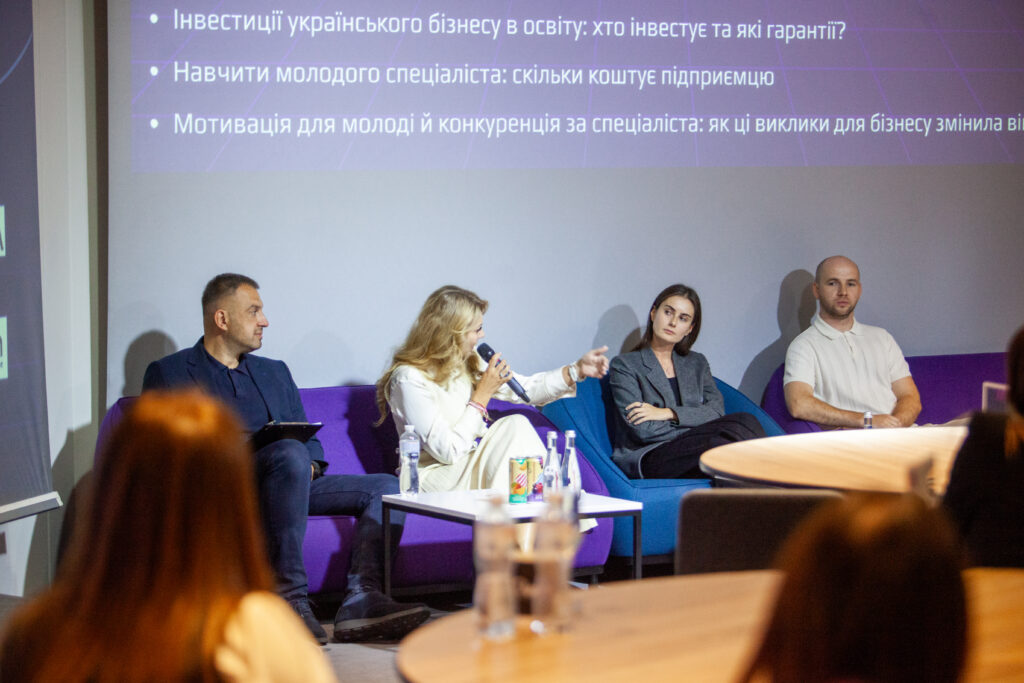
FUIB also invests in young people to fight the staff shortage. Denys Honcharuk, Head of the Recruitment and Adaptation Department, emphasizes that the bank responds to the shortage of personnel in Ukraine by introducing training and internship programs.
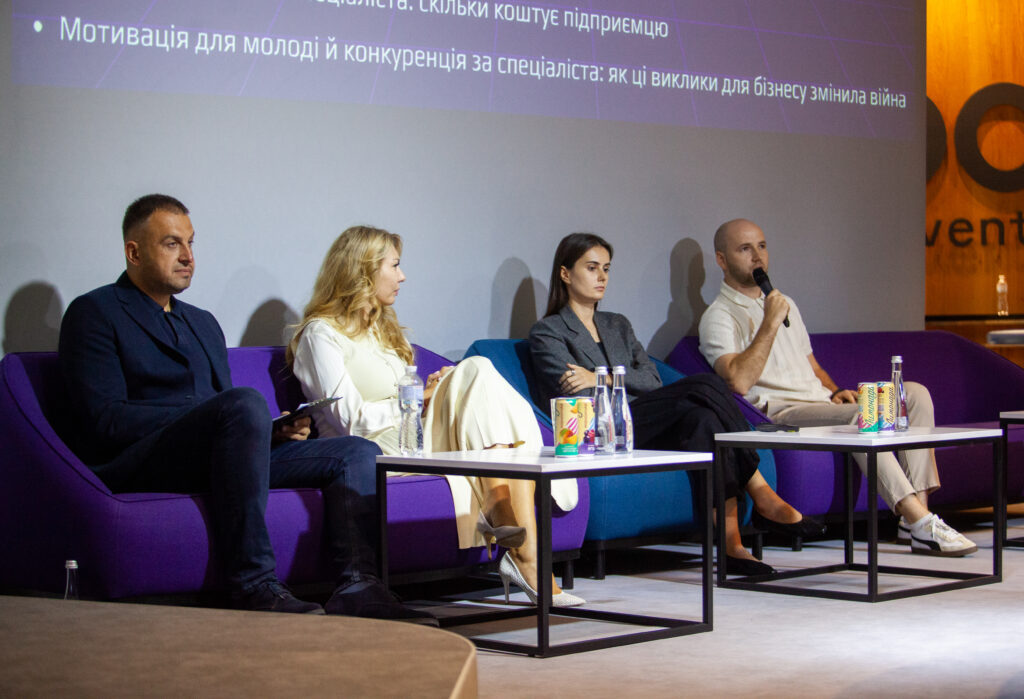
Olha Nagornyuk, Ajax Systems ‘Education Programs Manager, notes that the company is responding to the shortage of highly qualified specialists, especially in times of war and increased competition in the market, by joining forces with universities, funding the creation of modern laboratories and supporting teachers.
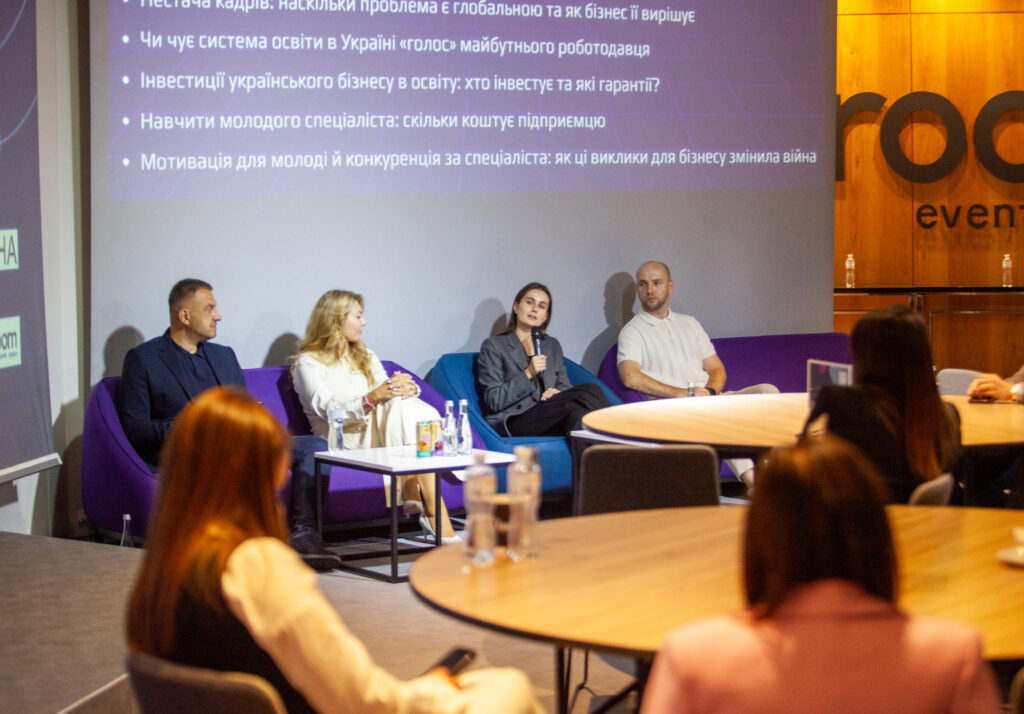
Olena Kolesnikova,Head of the Sustainable Development Committee of the Federation of Employers of Ukraine, emphasized that Ukraine has unique opportunities for professional development of young people, not worse than those abroad. They can and should be demonstrated to young people through the practical part of education, which most Ukrainian businesses are open to organizing.
Oleg Plakhtiy, Head of the HR Department at Epicenter K, spoke about a large-scale program to attract and develop young professionals. In particular, the company has experience in employing even 16-year-olds. In total, the program covers more than 160 educational institutions and includes internships, career guidance and practical training at production and logistics facilities.
